News Recovery Plan
A Future for News: the NUJ’s recovery plan for the news industry is the updated road map to reinvigorate the industry and sets out a bold set of measures and interventions to support and protect jobs and quality journalism.
During the Covid-19 crisis, the NUJ launched a News Recovery Plan (NRP) for the UK and Ireland in response to the threat to the media industry during the pandemic – posed by those disseminating disinformation, misinformation, racism and partisan agendas – and to provide a path to a future media landscape rooted in public interest journalism.
Now, it is needed more than ever, and its mixture of principles and pragmatic proposals has been updated to take in the threat of generative AI and how the cost-of-living crisis has added significant additional pressure to an already beleaguered sector.
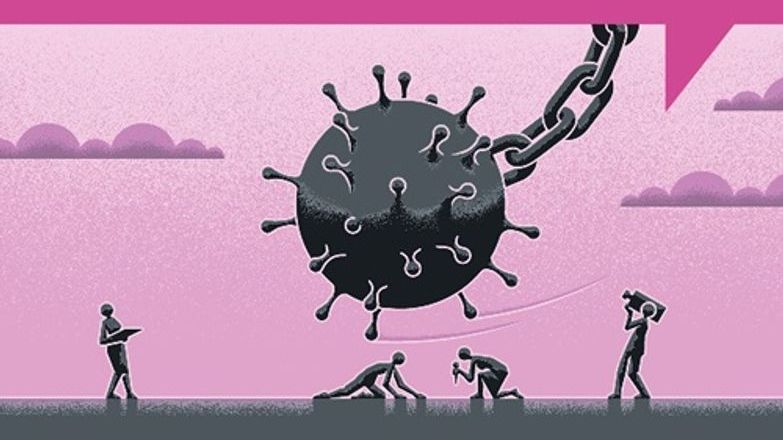
A Future for News: the NUJ's recovery plan for the news industry
The NUJ's updated News Recovery Plan
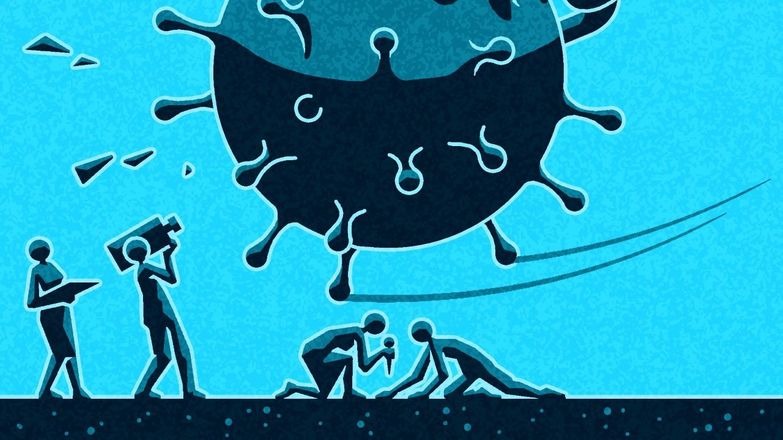
From Health Crisis to Good News: A recovery plan for the news industry in Ireland
NUJ proposals for a news recovery plan in Ireland.
Michelle Stanistreet, former general secretary, said:
“Right now the pressures on journalism and journalists are at their most grave at a time when we need quality, trusted information and news more than ever. Yet levels in public trust are impaired, frontline news resources have been hollowed out in many media outlets after successive cutbacks; the levels of deliberate engagement in mis- and dis-information by a range of actors are unparalleled; a combination that has been turbo-charged by the rapid deployment of generative AI.
"On top of this, journalists have also been contending with significant additional pressures in the form of rising rates of harassment, intimidation and threats. It makes quite the perfect storm.”
The NRP sets out ways to strengthen the democratic function of journalism by: reforming media ownership rules with a strengthened public interest test; improving protection for whistleblowers; calling for a conscience clause in staff and freelance employment contracts to protect journalists and communication workers from being forced to produce unethical content; safeguarding journalists against surveillance; and supporting a global framework to protect journalists and press freedom. The proposals address ways to increase investment in journalism by calling for a windfall tax of 6 per cent on the tech giants and an ongoing digital tax to provide sustainable future funding; Jobs for Journalists tax credits and interest free loans – a three-year targeted programme to bolster frontline newsgathering roles; tax perks for online or print news subscriptions and local advertising; and funding for new start-ups and public interest journalism initiatives. Central to the plan is the establishment of a journalism foundation set up by a government grant to champion public interest news and act as a broker for funding initiatives, with a remit including media literacy and fostering plurality and diversity in the industry.
We need global solutions tackle the challenges facing journalists and journalism. Which is why the collective efforts of journalists’ trade unions and our work with the International Federation of Journalists, including lobbying for a UN convention to protect journalists, is so important.
AI for public good
“The deployment of technology such as generative AI must be subject to safeguards, transparency and meaningful regulation so public trust is not further eroded and the rights of creators are respected and protected – now and in the future,” says the NRP.
Economic boost for news
- Windfall tax of 6 per cent on the tech giants, to provide immediate funding to reinvigorate the news sector – with an ongoing digital tax to provide sustainable future funding
- Jobs for Journalists tax credits and interest free loans – a 3-year targeted programme to bolster frontline newsgathering roles that protects trusted journalism as generative AI is deployed
- Strategic investment in government advertising, including the hyperlocal sector, involving central and local governments and the NHS / HSE
- Tax breaks, rate relief and other financial support for innovative public interest journalism, with targeted help for local social enterprises and journalistic cooperatives taking over titles from major regional operators, running them as not-for profit enterprises, with particular regard to areas at risk of becoming news deserts, with no newspapers operating at all
- Extension of business rates relief for local titles beyond 2025
- The establishment of a Journalism Foundation, set up by a government grant, to invest and innovate public interest journalistic projects, to encourage new funding models and start-ups, encourage philanthropic donations, and promote diversity and media literacy
- Free vouchers for online or print subscriptions to all 18 and 19 year-olds and tax credits for households with subscriptions to news outlets to boost engagement and fight back against disinformation
Support with conditionality
- Confer “asset of community value” status on local newspapers – like community pubs – ensuring that titles cannot be closed overnight without proper scrutiny; enabling newspapers to be taken over locally, based and located in the communities they serve and accessible to the public. Also allow the establishment of charitable status to media outlets that want it
- No public money for firms making redundancies, cutting pay, curtailing frontline journalistic roles, taking executive bonuses or blocking trade union organisation and recognition. Obligations to have equality action plans, including on tackling gender pay gap and securing wider pay parity
- Companies receiving public funds are prohibited for five years from engaging in mergers and acquisition activity or leveraged buyouts that result in job losses or pay reductions
- Employee representation on executive boards in receipt of public funding, from non-management roles, for minimum of 25 per cent of seats
Bolster public service broadcasting
- Protect and invest in public service broadcasting, acknowledging its role in creating diverse original content and its economic importance in the wider creative industry
- Establish sustainable funding of the BBC that enshrines its universality, in a model that protects against government interference, ends salami slicing cuts that are compromising quality and diminishing breadth of content, and prioritises quality local, regional, national and international news provision Increase investment in linear and digital news, reversing damaging cuts and ensuring that BBC local radio is genuinely local and relevant, with dedicated live news bulletins
- Raise Ofcom's minimum level local news output provisions
- Re-establish government funding for BBC World Service and Monitoring, acknowledging their role as a source of significant soft power and global influence
AI for public good
- Rights of journalists and all creators are human rights – generative AI should only be used as an assistive tool, always overseen by human journalists
- Creators’ moral and economic rights must be safeguarded, respected and protected from exploitation – with journalists having full control over their work, how it is used and what they are paid for it
- In the face of rapid deployment, comprehensive legislation with teeth is vital to enshrine the rights of creators and regulate AI, at the same time as ensuring respect and adherence to existing copyright and intellectual property laws
- Control and consent is vital – permission must be sought and granted, whether for AI training purposes or future uses
- Introduce a simple opt in mechanism, either for individuals or as part of collective licencing, revocable by the creator at any time
- No blanket agreements for “any and all uses” in future
- Fair and reasonable terms of compensation must be secured for all journalists and creators whose work has been stolen and used without consent
- Transparent labelling is key – content and images produced by generative AI should be clearly badged as such so the public can know whether news and information is based on trustworthy sources • Employers have a duty to be transparent and disclose to staff and freelance creators if any materials in an editorial work-flow have been generated in part or whole by AI
- Tech companies should be obligated to being fully open about their training data, the design of their algorithms and their output
- Safeguards should be developed to prevent large language models (LLMs) enshrining bias, social inequities and reinforcing discrimination
Strengthen media freedom and protect democracy
- Action to tackle surveillance of journalists and create safeguards to protect journalistic sources in the increasing deployment of facial recognition software and biometric data
- Rollout of nationwide media literacy initiative as part of efforts to tackle mis and disinformation and deep fakes, with stronger regulation that clamps down on tech companies that facilitate the dissemination of untrue and misleading content, and seeks their cooperation in prioritising accurate journalistic content
- Reform media ownership rules with a strengthened public interest test
- New market share rules – set at 25 per cent across all platforms and on each of; radio, television, newspapers and online. Market share that reaches or is liable to reach 15 per cent should be subject to a public interest test. Private firms would be required to divest or set up public trusts or accountable structures, following a public interest review and agreement
- Open-up access to journalism, with targeted training programmes including apprenticeships for school-leavers
- Conscience Clause introduced in contracts of employment and freelance terms • Improve protection for whistleblowers
- Ensure full and free access to public and political events, including equality of access for disabled journalists, and ensuring a plurality of news outlets and freelances can be accommodated
- Support global framework to protect journalists and promote journalism and improve press freedom
“Trust in journalism must be enhanced where quality reporting is strongly rooted in the NUJ’s Code of Conduct’s ethical framework.”
Ireland
On World Press Freedom Day, Sunday 4 May, the NUJ in Ireland published a recovery plan for local and national media and called for the transfer of all media policies to a new department, the Department of Arts, Culture and Media from the Department of Communications, Climate Change and Environment.
It said targeted measures were needed to support jobs and quality journalism, and bolster independent, diverse, ethically produced content. Specific intervention was required to protect and invest in hyperlocal and community enterprises.
More information:
Recovery plan news
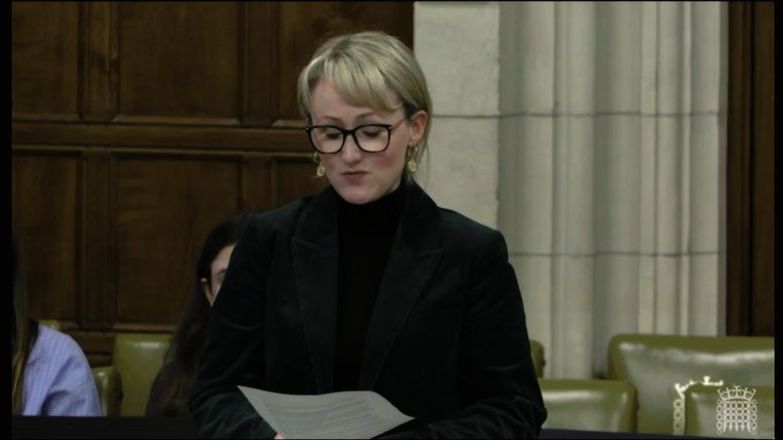
MPs demand urgent regulation and funding for local news industry
MPs have called for urgent investment, reform, and regulation to revive local journalism in the face of enormous financial pressures and the threat of...
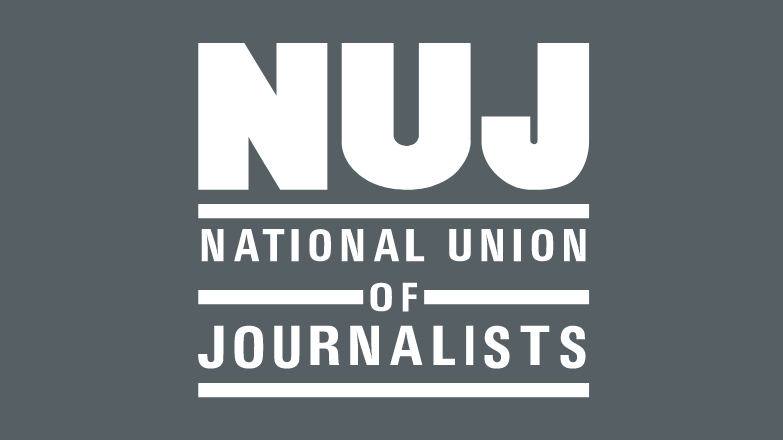
NUJ opposes plans to scrap public notices in local papers
The NUJ has urged the UK government to retain requirements for alcohol licensing notices and changes to local governance to be printed in local newspa...
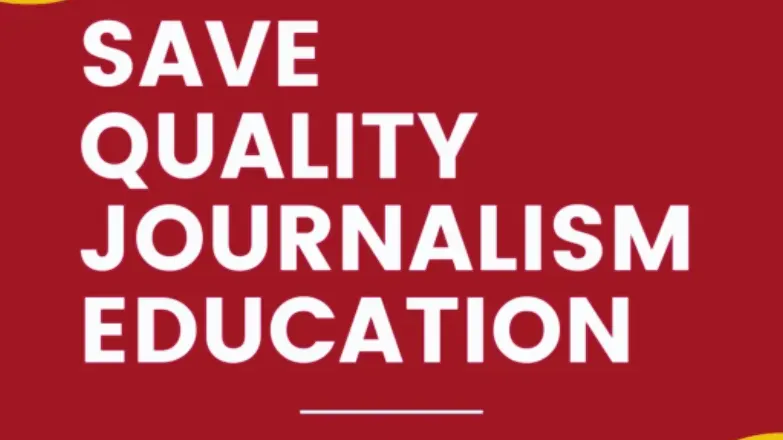
Save Quality Journalism Education
NUJ backs NCTJ campaign urging the reversal of planned cuts to journalism course funding.

Tax breaks for tech giants a flawed approach, says NUJ
The union is deeply concerned about possible changes to the Digital Services Tax (DST) after Rachel Reeves, UK chancellor, confirmed she was consideri...
